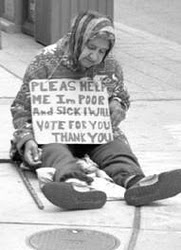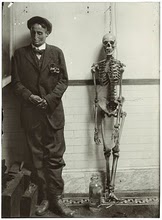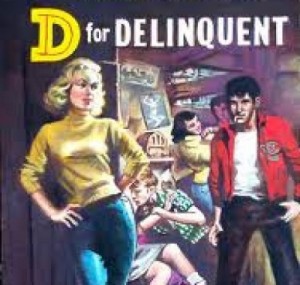The following was written by Siddiq Khan of Love Letters Journal, 7th December 2014:
Let us not mourn famous men
(formerly entitiled “Test Taste”)
Mandela is dead. Good riddance. Unfortunately the democratic lie is as healthy as ever. In 1994 blacks in this country were satisfied with electing a black president; if they were not, they would not have allowed him and his cronies to order an end to mass struggle – or to turn it off and on, like a tap – when it suited them. Twenty years later, the taps are broken. We are not satisfied anymore. More elections are around the corner, and we will be ordered again to voice our dissatisfaction at the voting booth with the old motto: don’t change life, change leaders.
The majority see through the con: most don’t bother to vote. The fact that so many people find such an apparently significant act not worth the trouble of standing in line for a few minutes (or hours) once every five years is indication enough of the level of disaffection felt by people towards the putrid corruption at the heart of this ridiculous charade. To us, ‘free and fair’ elections = ‘Free-from-relevance and fairly-useless’. We are disgusted not at ‘electoral fraud’ but at the fraud of elections. Despite the renewal of autonomous contestation at the point of production; most of this despair (and anger, as shown by ever-present protests) over the failure of politricks to change our condition of daily misery has thus-far been contained within the terrain of politics itself. What is necessary, however, is to direct this discontent towards its source – the miseries experienced in everyday life.
Often the route to this kind of radical simplification turns out to be complicated: To approach everyday life; it is necessary to return for a moment to Tata Madiba. He is a hero. There is perhaps nothing more to say about him. Like every other hero, celebrity, and star in this upside-down society (including those of the ‘progressive’, ‘radical’ and ‘revolutionary’ variety); Mandela has always been an enemy of ordinary proletarians. Next year there will be national elections; the politicians will use his image as a red flag, waving it around like bull-fighters to trick the working class into running this way, running that way — only to butcher us in the end (see: Cato Crest & Marikana). “The emancipation of the proletariat is the task of proletarians themselves”. An essential element of this task is learning to say: Fuck politics, political parties and politicians. Fuck the ANC, fuck all the fake-opposition parties, fuck the president, fuck parliament, fuck Desmond Tutu, and especially fuck Nelson Mandela. Unless we can tell them all to go to hell, they will do everything in their power to take us into its deepest recesses. As a matter of fact we already are there; and it’s the job of Mandela and all those like him to keep us here. Many mortals have had visions of “that abode of the damned which the justice of an offended God has called into existence for the eternal punishment of sinners”. Dante Alighieri, the inventor of the Italian language, was one of them. But, as a poet once said, “Visions are problems. Vision is the solution that precedes the problem.” To put it another way:
It was the earth that Dante trod
When he trod Hell, it was the earth:
Itself sufficient for the hearth
That warms the hands of a cold God.
We don’t need visions or visionaries, heroes or heroism. They are all part of the problem. What we need is clarity. A clear view of the problem. Then we can begin to experiment with solutions for ourselves. Everything about this society trains us to keep our eyes turned to the sky: “you’ll get pie there when you die.” This way we are unable to look at the un-heroic existence right in front of our noses. “The most powerful weapon in the hands of the oppressor is the mind of the oppressed.” We see visions, we follow dreams, we fight for phantoms. We fear ‘sin’, we pursue careers, we struggle for ‘democracy’. And every day, life passes us by because – unnoticed, unthought of, and unspoken – everyday life passes us by.
“But to use a somewhat simplistic spatial image,” wrote Guy Debord in Perspectives for Conscious Changes in Everyday Life – which, to modern ears, sounds like a self-help manual, and in a sense it is, but a radical one, “we still have to place everyday life at the center of everything. Every project begins from it and every accomplishment returns to it to acquire its real significance. Everyday life is the measure of all things: of the (non)fulfilment of human relations; of the use of lived time; of artistic experimentation; and of revolutionary politics.”
The English say “the proof of the pudding is in the eating.” Which means: “if capitalism were good, the lives of those who live in it would be good.” Our lives are not good. They have not been good. We know they will not be good as long as we have to work, so long as we have to make money, so long as we have to live in a world of jobs, couples, schools, prisons, armies, marriage, police, bank-accounts, gangster-governments, anarchism, democracy, socialism, NGOs, religion, family, The Mail and Guardian, shopping.
Of all these evils, work is the worst curse that ever struck mankind. When our ancestors lived off the land, when they hunted and farmed for themselves, they did just that: they lived. They laboured and they played, they struggled and they toiled – it was not always easy to make a living, but at least what they made, poor as it may have been in many respects, was life. The moment they started to work, labour stopped being used to make life. It is now used, as the bosses put it, to ‘make a killing’. When we enter our workplaces we leave our lives behind. We do the making, we do the killing; it is our lives that are killed. When it is done to make money, labour is murder. When it is done to make love, to make life – when a woman goes into labour – or to nurture life in child-rearing, housework, and re-creation; labour is not work. It makes no money. It means nothing, because it kills nothing. In the vile world of work & workers there is no meaning, no value, no use outside ‘the autonomous movement of non-life’ whose slick gears are greased by blood and fuelled with corpses. To be a worker is to be a slave. Many poorer workers are ashamed of their poverty. It is not the relative poverty of some but the absolute slavery of all workers that is truly shameful.
All of us – worker or unemployed, home-maker or student, suburbanite or bergie – are forced each day to live in ways that are out of our control. Until now we have failed at every opportunity for freedom because we never attacked this curse of work in a simple, straightforward enough way. We have confused ourselves with a mishmash of jumbled ideas about the economy, social-justice, the government, social-services, elections, social-democracy, growth-rates, grass-roots participation, self-management – we’ve tried every way to change our lives except the one way that will work: to get rid of work. There is nothing unusual about such a goal. For the majority of human existence on this earth, not a single person worked. For thousands of years women across Africa would call their neighbours to help them farm their fields, and nobody thought of turning it into a ‘decent job’ or demanding ‘a living wage’. They shared homemade beer, cider and wine; they sang and they danced in graceful, elaborate costumes; they smoked tobacco and dagga out of painstakingly carved, beautifully assembled pipes; they ate together with food freely provided by the host; the children played among themselves or snuck off, as they always do, to quench the passions of the heart in one another’s bodies. Even with all the digging, weeding, harvesting and planting, it was actually an excuse for a party. [Samotnaf note: whilst this may be true for South Africa and lots of other places, it’s not true for everywhere by any means; often conditions were very harsh and life was short and unpleasant.]
Today it is work rather than field-parties that organises social time and space; the only parties of any significance these days are political ones. Every Party, even when it calls itself revolutionary, promises to put us back to work. Whenever we walk out on the job, sure enough all the unions will call for a return to work. The problem with the worker’s movement is that it’s not an anti-worker’s movement. The only solution to the unemployment crisis is full unemployment. The proof is in the pudding; the truth is in the tasting. Now that the old parties and unions have so thoroughly discredited themselves, and more people are coming together to change their own lives, many choices will be faced which will determine whether the fate of our generation escapes the miserable failures of our parents. Many people will spring up with proposals for this or that imaginary system and requests for support of such and such a cause. From now on, whenever there is need to test if a course of action actually holds the possibility for moving us closer to liberation, the first thing to ask is ‘will this be a practical step towards the abolition of work?’ If not, not.
It’s never so simple, of course. Often the answer will be, ‘possibly’. Then the question is ‘how’ – and ‘how likely’? Another is, ‘what next’? Another is ‘what else?’ And so on.
Still, the first principle remains… primary.
If not, not.
Siddiq Khan,



Leave a Reply